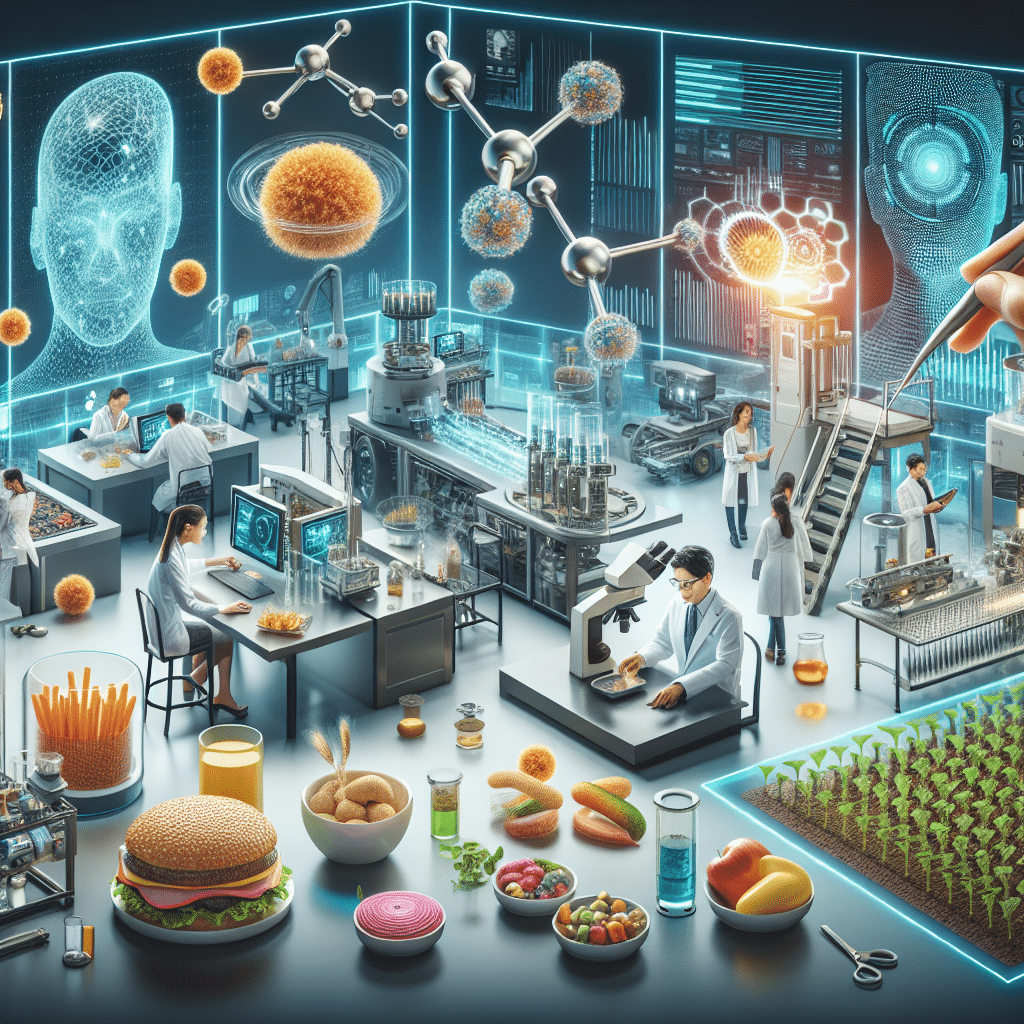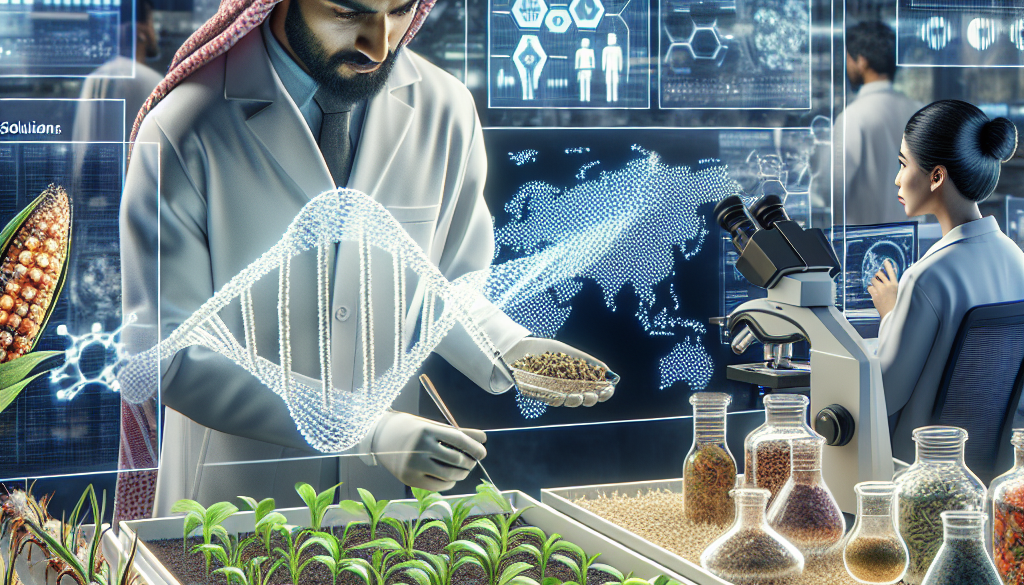Emerging Ingredient Technologies to Intensify Food Sustainability
-
Table of Contents
- Emerging Ingredient Technologies Boosting Food Sustainability
- Plant-Based Proteins: A Sustainable Alternative
- Cellular Agriculture: The Future of Meat Production
- Algae and Insect Proteins: Unconventional but Effective
- Food Waste Valorization: Turning Waste into Worth
- Conclusion: The Path to a Sustainable Food Future
- ETprotein: Leading the Way in Sustainable Protein Solutions
Emerging Ingredient Technologies Boosting Food Sustainability

The global food industry is at a critical juncture, facing the dual challenges of feeding a growing population and reducing its environmental footprint. As the demand for sustainable food systems intensifies, innovative ingredient technologies are emerging as key solutions to these challenges. These technologies not only aim to improve the efficiency of food production but also to reduce waste, conserve resources, and provide healthier options for consumers. In this article, we will explore some of the most promising emerging ingredient technologies that are set to revolutionize the food industry and intensify its sustainability.
Plant-Based Proteins: A Sustainable Alternative
One of the most significant shifts in the food industry is the move towards plant-based proteins. These proteins are derived from sources such as peas, rice, and other legumes, offering a sustainable and environmentally friendly alternative to animal proteins. The production of plant-based proteins requires less water, land, and energy, and generates fewer greenhouse gas emissions.
- Pea protein, for example, has seen a surge in popularity due to its high protein content and hypoallergenic properties.
- Rice protein is another sustainable option that is gaining traction due to its ease of digestibility and complete amino acid profile.
Statistics show that the plant-based protein market is expected to grow at a CAGR of 7.2% from 2020 to 2027, indicating a strong consumer shift towards these sustainable ingredients.
Cellular Agriculture: The Future of Meat Production
Cellular agriculture is a groundbreaking technology that involves producing animal products from cell cultures rather than from whole animals. This method has the potential to drastically reduce the environmental impact of meat production by lowering land use, water consumption, and emissions.
- Lab-grown meat, also known as cultured meat, is created by harvesting animal cells and growing them in a controlled environment.
- Dairy proteins like casein and whey can also be produced through fermentation processes, eliminating the need for cows.
While still in the early stages, cellular agriculture could reduce the carbon footprint of meat production by up to 96% and use 99% less land, according to some studies.
Algae and Insect Proteins: Unconventional but Effective
Algae and insects are unconventional sources of protein that are gaining attention for their sustainability benefits. Algae, such as spirulina and chlorella, are rich in protein and nutrients and can be cultivated with minimal environmental impact. Insects, on the other hand, are a highly efficient protein source, requiring less feed and water than traditional livestock.
- Algae can be grown using water that is unsuitable for other crops, making it an ideal ingredient in arid regions.
- Insects like crickets and mealworms have a high feed conversion rate, meaning they convert feed into protein more efficiently than cattle or poultry.
With the global edible insects market projected to reach $1.18 billion by 2023, these alternative proteins are set to play a significant role in sustainable food production.
Food Waste Valorization: Turning Waste into Worth
Food waste valorization involves converting by-products or waste streams from food production into valuable ingredients. This approach not only reduces waste but also creates additional revenue streams for food producers.
- Upcycled ingredients, such as fruit pomace or spent grains from brewing, can be transformed into flours, fibers, or animal feed.
- Extracting valuable compounds like pectin from citrus peel or antioxidants from coffee grounds adds functional benefits to other food products.
It is estimated that food waste valorization could save the global economy about $1 trillion annually by creating new products and reducing disposal costs.
Conclusion: The Path to a Sustainable Food Future
The technologies discussed in this article represent just a fraction of the innovative solutions being developed to address the sustainability challenges facing the food industry. By embracing plant-based proteins, cellular agriculture, alternative protein sources like algae and insects, and food waste valorization, the industry can move towards a more sustainable and efficient future. These emerging ingredient technologies not only have the potential to reduce the environmental impact of food production but also offer health benefits and new culinary experiences for consumers.
As we continue to explore and invest in these technologies, it is crucial to support companies that are at the forefront of sustainable ingredient innovation. One such company is ETprotein, which specializes in high-quality organic bulk vegan proteins and L-(+)-Ergothioneine (EGT).
ETprotein: Leading the Way in Sustainable Protein Solutions
ETprotein is a reputable protein and L-(+)-Ergothioneine Chinese factory manufacturer and supplier known for its commitment to sustainability and quality. Their product range includes organic rice protein, pea protein, and various seed proteins, all characterized by a neutral taste, non-GMO, and allergen-free attributes. With L-(+)-Ergothioneine purity over 98%, ETprotein caters to a diverse range of industries, including nutraceuticals, pharmaceuticals, and food and beverage.
By choosing ETprotein’s products, consumers and manufacturers can contribute to a more sustainable food system while enjoying the benefits of high-quality, plant-based proteins. For more information or to sample their products, please contact ETprotein and email sales(at)ETprotein.com today.
About ETprotein:
ETprotein, a reputable protein and L-(+)-Ergothioneine (EGT) Chinese factory manufacturer and supplier, is renowned for producing, stocking, exporting, and delivering the highest quality organic bulk vegan proteins and L-(+)-Ergothioneine. They include Organic rice protein, clear rice protein, pea protein, clear pea protein, watermelon seed protein, pumpkin seed protein, sunflower seed protein, mung bean protein, peanut protein, and L-(+)-Ergothioneine EGT Pharmaceutical grade, L-(+)-Ergothioneine EGT food grade, L-(+)-Ergothioneine EGT cosmetic grade, L-(+)-Ergothioneine EGT reference grade and L-(+)-Ergothioneine EGT standard. Their offerings, characterized by a neutral taste, non-GMO, allergen-free attributes, with L-(+)-Ergothioneine purity over 98%, 99%, cater to a diverse range of industries. They serve nutraceutical, pharmaceutical, cosmeceutical, veterinary, as well as food and beverage finished product distributors, traders, and manufacturers across Europe, USA, Canada, Australia, Thailand, Japan, Korea, Brazil, and Chile, among others.
ETprotein specialization includes exporting and delivering tailor-made protein powder and finished nutritional supplements. Their extensive product range covers sectors like Food and Beverage, Sports Nutrition, Weight Management, Dietary Supplements, Health and Wellness Products, and Infant Formula, ensuring comprehensive solutions to meet all your protein needs.
As a trusted company by leading global food and beverage brands and Fortune 500 companies, ETprotein reinforces China’s reputation in the global arena. For more information or to sample their products, please contact them and email sales(at)ETprotein.com today.












